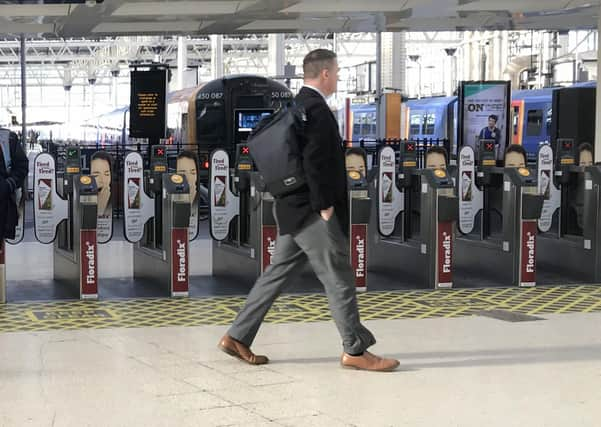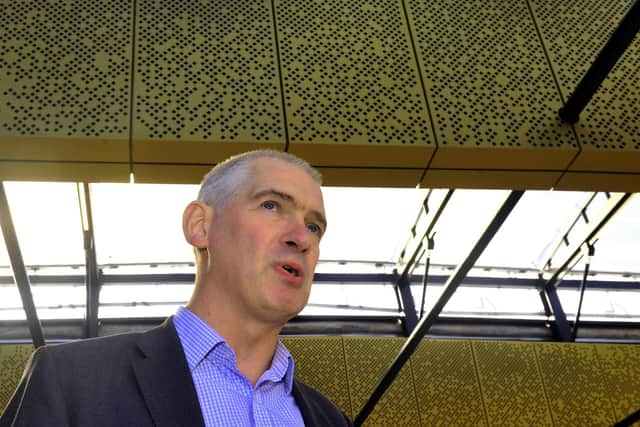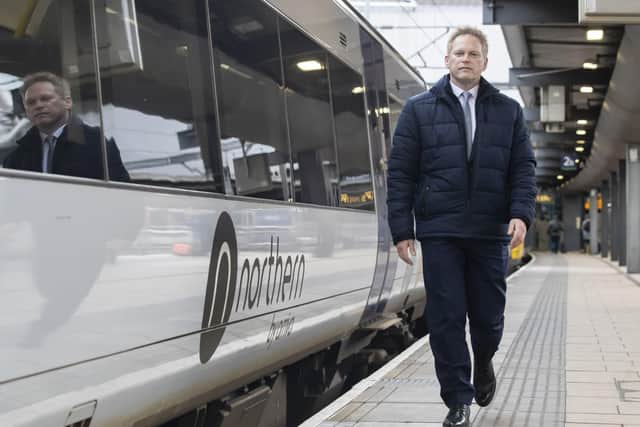Key workers: How we will try to keep the trains running – Rob McIntosh


This week we launched a reduced timetable as the first stage towards allowing us to keep trains running during an unprecedented public health emergency.
We have an important role to play in allowing frontline workers to carry on going to work. The country’s focus, understandably, is on NHS staff. On the doctors and nurses who will care for those struck down by this virus, as well as treating all the other illnesses and ailments that will still require their attention every day.


Advertisement
Hide AdAdvertisement
Hide AdWe will do our best to make sure they can still get to the hospitals across Yorkshire where they are so badly needed. Just as we will to support the police officers, firefighters, ambulance crews and all the other emergency service and public service workers.
But they are not the only people who will carry on depending on trains. People are needed to stock supermarket shelves and sell us food at the tills. We need the local authority workers to keep towns and cities going across the North – and the rest of the country. We need the teachers who are keeping schools open to look after the children of key workers. And we need all those other unnoticed and unsung heroes that we depend on every day, but who we notice less often than we should and appreciate less often than they deserve.
Getting those people to work every day will be one half of the vital job the railway will have to do during this crisis. The other will be keeping freight moving. It is often the invisible service on our network, but it means that we can support places such as Drax power station near Selby, or the Port of Immingham. It also means our shops will have as much stock as possible.
Some people who live near the railway might notice increased noise from freight services, particularly at night. I’d like to apologise in advance, but also ask for their understanding in such an unprecedented situation.


Advertisement
Hide AdAdvertisement
Hide AdWe have had to introduce a reduced timetable to allow us the maximum possible chance to deliver the crucial public service of moving goods and key workers, while also managing the impact of this virus on our own workforce.
The people who go out every day and night on the railway are already superheroes in my eyes. But, unfortunately, that doesn’t make them immune to getting ill. Many of them will be off sick in the coming weeks. Many, like me, have young children or ageing parents to worry about. Others are expecting babies. And others have underlying health problems that make them more vulnerable.
But the engineers who maintain our tracks, the signallers who keep trains moving safely, the train drivers and managers, and all the other vital frontline rail workers will still be going to work every day to do the job the railways were established to do – to support the country.
The timetable introduced this week is a direct response to a rapidly changing situation, but I don’t want you to think this is a knee-jerk reaction. We have business continuity plans that are the result of long and meticulous planning.
Advertisement
Hide AdAdvertisement
Hide AdThat’s not to say every train will run smoothly. There will increasingly be staff shortages and that will also have an effect on our ability to run trains.
It’s important for me to warn you at this point that there might be further reductions in services to come. We are planning on the basis of a certain proportion of our workers being off at any one time, but those figures will rise and fall as the pattern of infection changes. And we could see isolated and localised issues at crucial parts of our infrastructure – for example at our signal boxes, or our crucial Rail Operations Centres – that will have potentially sudden impacts on specific services. Again, we have plans in place to manage these eventualities, but I can’t guarantee there won’t be problems along the way.
It’s not my job to provide public health advice or to tell you whether your journey is essential or not. But it is my job to do everything I can to get you where you need to be, when you need to be there.
Many people are saying this is the biggest challenge to face the country since the Second World War. The railways played a vital part in keeping the country moving then. And we will do our very best to do the same now.
Rob McIntosh is Network Rail’s regional director.
Comment Guidelines
National World encourages reader discussion on our stories. User feedback, insights and back-and-forth exchanges add a rich layer of context to reporting. Please review our Community Guidelines before commenting.
